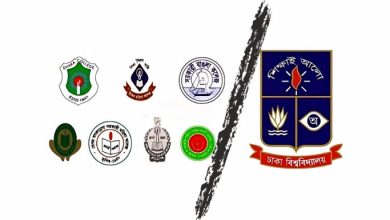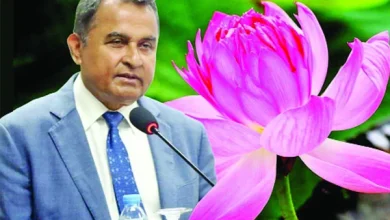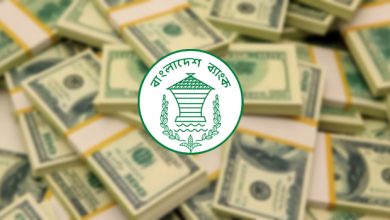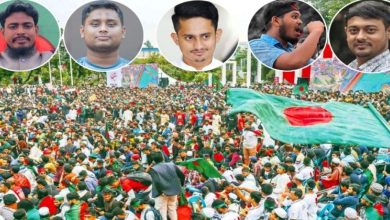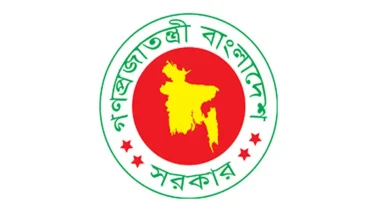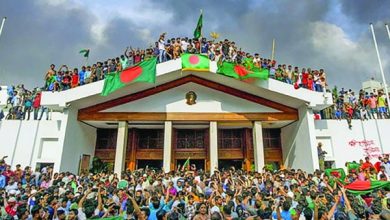What the US State Department report on int’l religious freedom says about Bangladesh
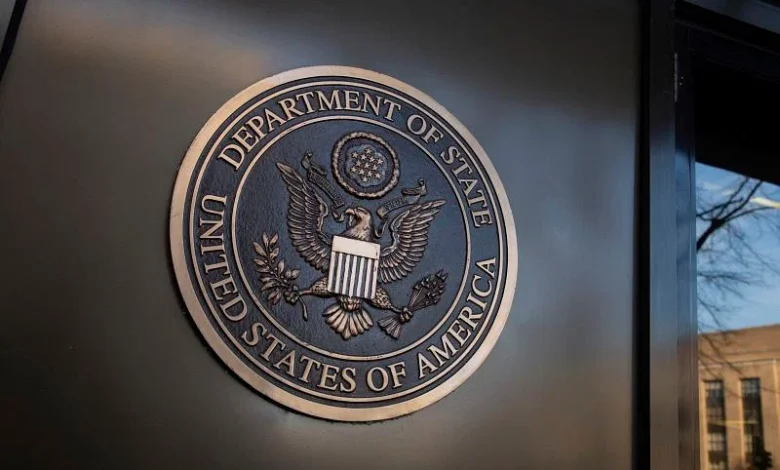
The US State Department has published the 2023 Report on International Religious Freedom, which has highlighted several hindrances and discriminations in practising religion.
It said the constitution designates Islam as the state religion but upholds the principle of secularism. It prohibits religious discrimination and provides for equality for all religions. Family law, enforced in secular courts, contains separate provisions for different religious groups.
In March last year, Ahmadi Muslim leaders said law enforcement and government officials stood by as hundreds of persons attacked the Ahmadi community during its annual convention in Ahmednagar. Two people were killed and dozens injured, and hundreds of Ahmadi houses were looted and one Ahmadi mosque and an Ahmadi medical clinic were destroyed in the violence.
Later, police filed cases against thousands of unnamed individuals and arrested over 200, including the alleged instigators of the violence.
Leaders of religious minority communities continued to say the government frequently used laws such as the Digital Security Act (DSA) to target members of religious minority groups, particularly Hindus, for “hurting the religious sentiments” of Muslim populations.
In almost all cases, courts took harsher measures against members of religious minorities for posting allegedly derogatory content on Facebook than against the perpetrators of retaliatory violence. Several cases followed this pattern during the year.
Meanwhile, Muslim leaders said the government continued to influence the appointment and removal of imams and provide guidance on the content of sermons to imams throughout the country.
In September last year, the Bangladesh Hindu Buddhist Christian Unity Council (BHBCUC) announced a hunger strike to demand implementation of past election pledges to implement a law allowing citizens (mostly Hindu) to recover property seized by the government following independence, form a national minority commission, enact a special law for the safety of religious minority communities, and reinstate the government employment quota system for members of religious minorities.
In April, a Muslim scholar and three village elders faced charges after issuing a fatwa ordering a woman accused of an extramarital affair to be caned and stoned.
One organisation that monitors incidents across the country stated there were 22 incidents of violence against religious minorities from January to December in which one Ahmadi Muslim was killed and 62 Ahmadis and 19 Hindus injured.
Human rights NGOs and some religious leaders continued to report harassment and social isolation of, and physical violence against, converts to Christianity from Islam and Hinduism.
One person was killed and another 81 injured.
Status of government respect for religious freedom
According to the constitution, “The state religion of the Republic is Islam, but the State shall ensure equal status and equal rights in the practice of the Hindu, Buddhist, Christian, and other religions.”
Under the penal code, statements or acts made with a “deliberate and malicious” intent to insult religious sentiments are subject to fines or up to two years in prison.
Although the code does not further define this prohibited intent, the courts have interpreted it to include insulting the Prophet Muhammad.
The criminal code allows the government to confiscate all copies of any newspaper, magazine, or other publications containing language that “creates enmity and hatred among the citizens or denigrates religious beliefs.”
The law applies similar restrictions to online publications. While there is no specific blasphemy law, authorities use the penal code, as well as a section of the Information and Communication Technology Act and DSA to charge individuals for acts perceived to be a slight to Islam.
The DSA continues to criminalise publication or broadcast of “any information that hurts religious values or sentiments.”
The constitution prohibits freedom of association if an association is formed for the purpose of “destroying the religious, social, and communal harmony among the citizens,” or creating discrimination on religious grounds.
Failure to punish people involved with violence
Hindu leaders continued to criticise the government for failing to adequately punish the perpetrators of anti-Hindu communal violence during Durga Puja celebrations in 2021.
They noted, however, that the government took steps such as deploying additional law enforcement resources and organising interreligious dialogue workshops to encourage religious harmony ahead of the 2023 Durga Puja celebrations in October.
There were no reports of communal violence during those celebrations.
Detention of suspects
On 27 March last year, police detained 17 persons from a Quran teaching centre in the Gulshan area of Dhaka as they engaged in regular night-time prayers during Ramadan.
Media reported that four additional Muslims were later arrested, including family members who were bringing supplies to the detainees.
Police said the detainees, which included women and children, belonged to the Islamist political party Bangladesh Jamaat-e-Islami and were seeking to attack the government.
The acting secretary general of Jamaat-e-Islami said that police claims to have also recovered explosives (Molotov cocktails) from the residences of some of the detainees were “ridiculous.”
Controlling religious practices, ‘discrimination’ against minority community and others
Thousands of mosques, including the Baitul Mukarram National Mosque in Dhaka, continued to operate under the direct authority of the Islamic Foundation, an entity administered by the Ministry of Religious Affairs. The government funded imams and employees of those mosques.
Mosques not overseen by the Islamic Foundation still operated with oversight from a governing committee that was dominated by local ruling party politicians and administrations.
The government influenced the appointment and removal of imams and provided guidance on the content of sermons to imams throughout the country.
The government issued written instructions highlighting certain Quranic verses and quotations of the Prophet Muhammad for imams to use.
The government also instructed imams to denounce extremism. Religious community leaders said imams in all mosques usually continued the practice of avoiding sermons that contradicted government policy.
During a press conference in June, the BHBCUC stated the allocation for religious minorities in the proposed national budget was clear proof of “disregard, neglect, and discrimination” toward the communities because of the larger share going to the Islamic Foundation.
In a statement, the BHBCUC general secretary said funding for the welfare of religious minority communities amounted to only 6.4 per cent of the Ministry of Religious Affairs’ budget.
In October, two individuals were arrested, and the BHBCUC sued 500 individuals, for carrying out an attack on members of the BHBCUC who were participating in an organised protest in Cumilla.
The BHBCUC said they had organised their event to protest what they said were remarks offensive to the Hindu community by Awami League local leaders, an attack on a Hindu poet in Kurigram, and vandalism of temples in Cumilla during Durga Puja in 2021.
Those arrested and sued were members of the ruling Awami League political party student and youth wings, according to media reports.
At a press conference in Dhaka on 19 June , a Dhaka-based women’s organisation urged the government to make National Identity Card photographs optional for Muslim women, who choose to wear veils.
The group said denying ID cards to women, who declined to remove their veils, violated their human rights.
The group called for fingerprints or iris scans to be used to verify identity, and if authorities needed to see under a woman’s veil, to do so using female officers in a private setting.
Hindus, Buddhists, Christians, and members of other minority religious communities, who were also sometimes members of ethnic minority groups, continued to report property and land ownership disputes and forced eviction cases, including some involving the government, that remained unresolved at year’s end.
Some human rights activists said it was often difficult to determine whether these disputes and evictions were the result of deliberate government discrimination against religious minorities or of government inefficiency.
Freedom House’s ‘Freedom in the World 2023 Report’ on the country assessed that religious, ethnic, and other marginalised groups remained underrepresented in politics and state agencies.
Some additional issues affecting religious freedom
More than 122,000 Bangladeshis performed Hajj in June, according to media reports and government estimates.
Although most of the pilgrims’ travel was facilitated by private Hajj agencies, the Ministry of Religious Affairs oversaw the process.
The government signed a bilateral agreement with the Government of Saudi Arabia in January to determine the number of Bangladeshi pilgrims, set prices for the Hajj travel packages, provide orientation to the pilgrims at a government facility prior to departure, and regulate the private Hajj agencies.
Local media noted the high cost of Hajj packages and airfare, including for travel on the national airline, Biman Bangladesh, which charged much higher airfare for Hajj flights than other airlines in the region.
The airline said higher taxes, exchange rate fluctuations, and skyrocketing fuel prices were the reasons for the increase.
Facing criticism, in March, the Ministry of Religious Affairs directed the airline to reduce the fare; the airline said it could not do so for the 2023 Hajj.
According to media reports, a typical pilgrim spent approximately $6,300 to perform Hajj, up from approximately $1,450 the previous year, mostly because of exchange rate fluctuations and the high cost of flights.


